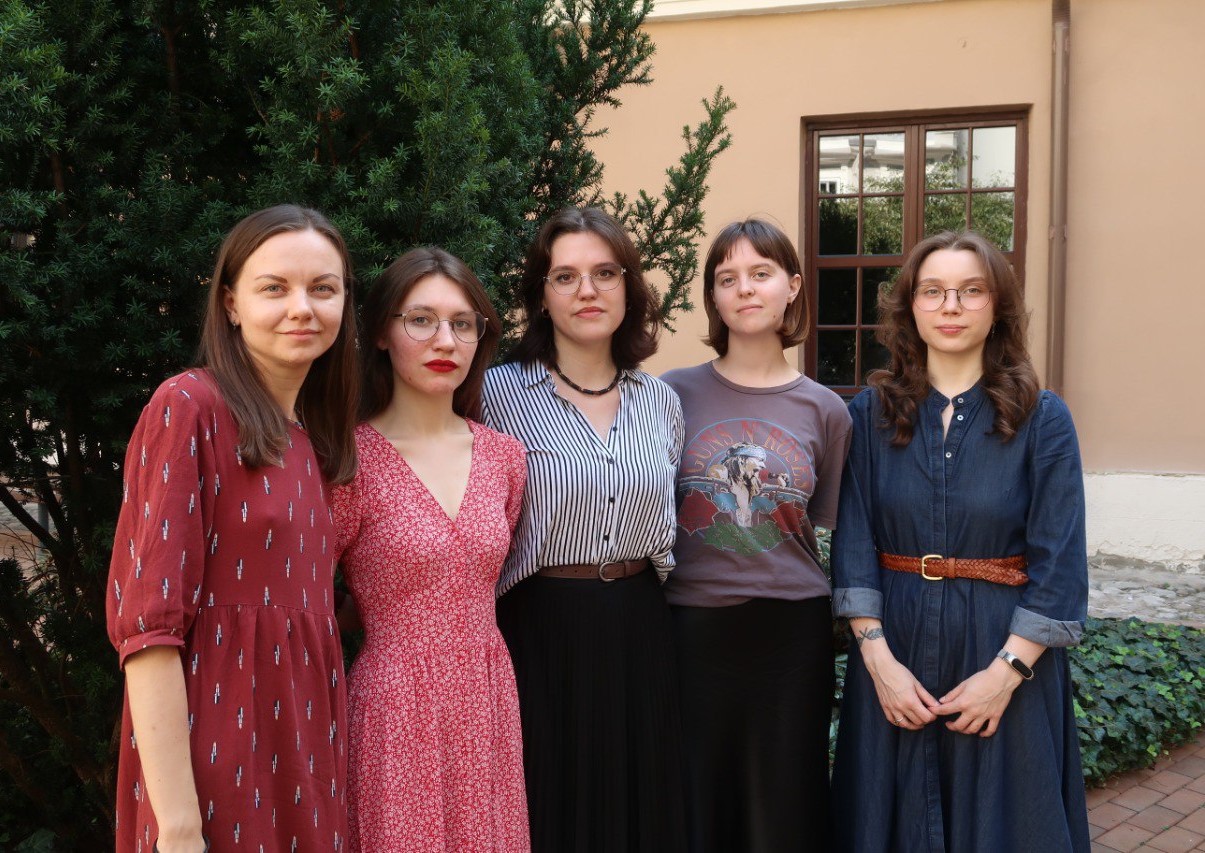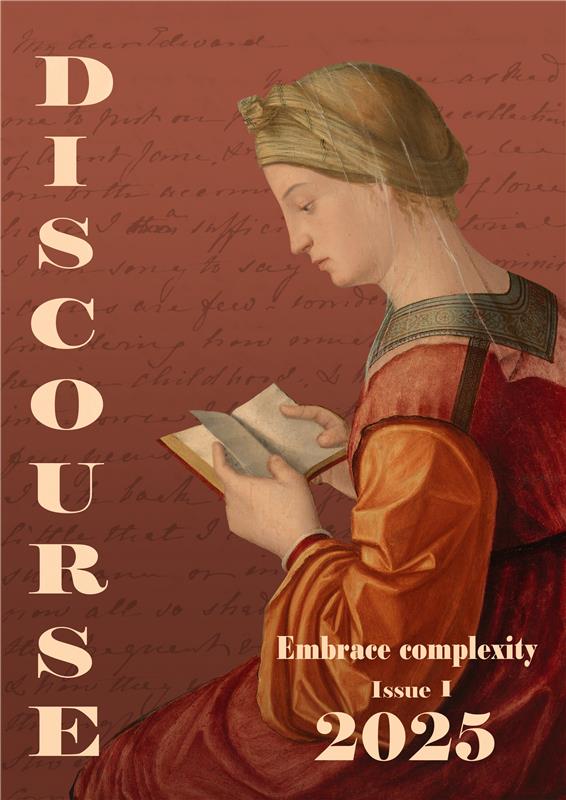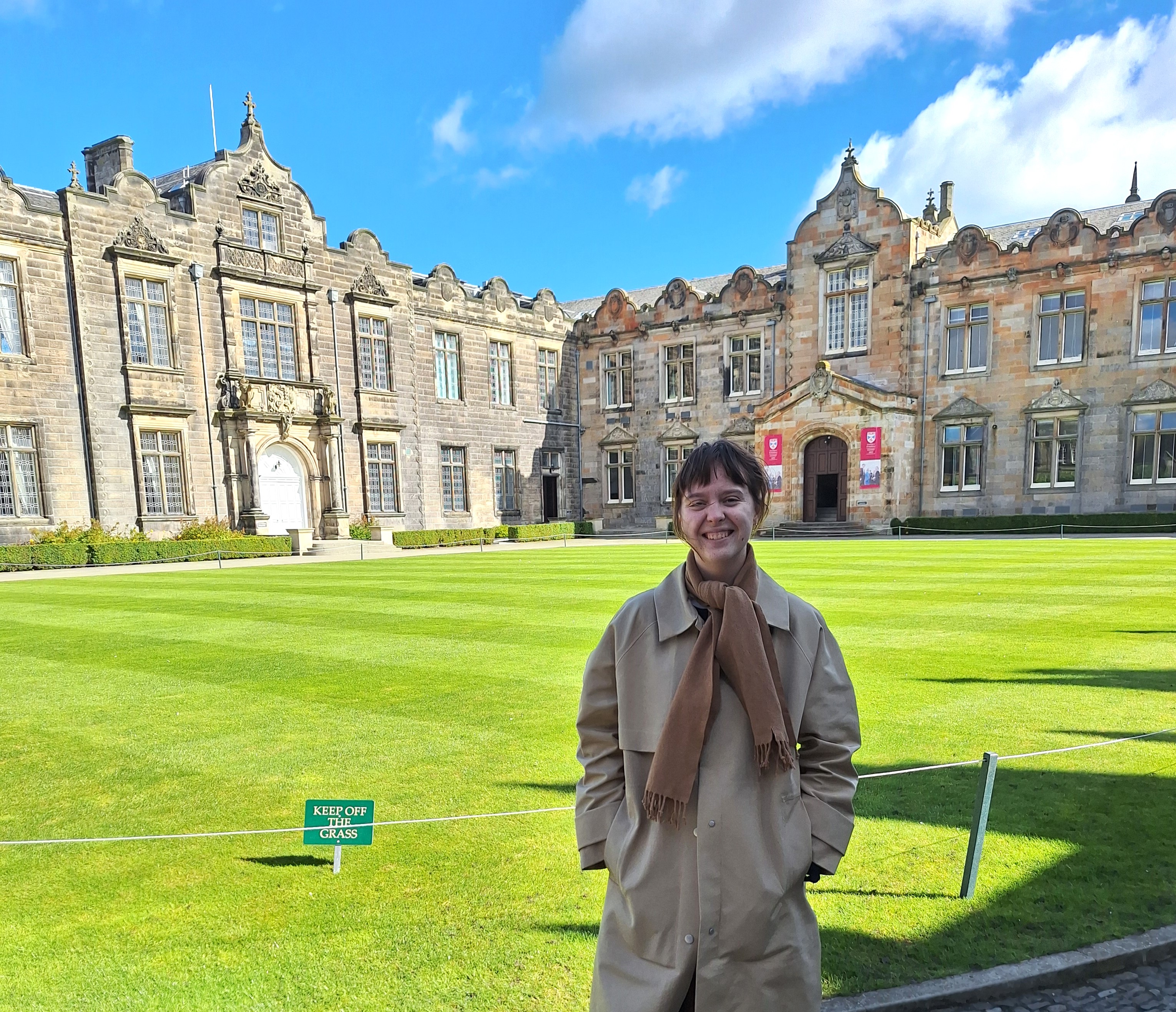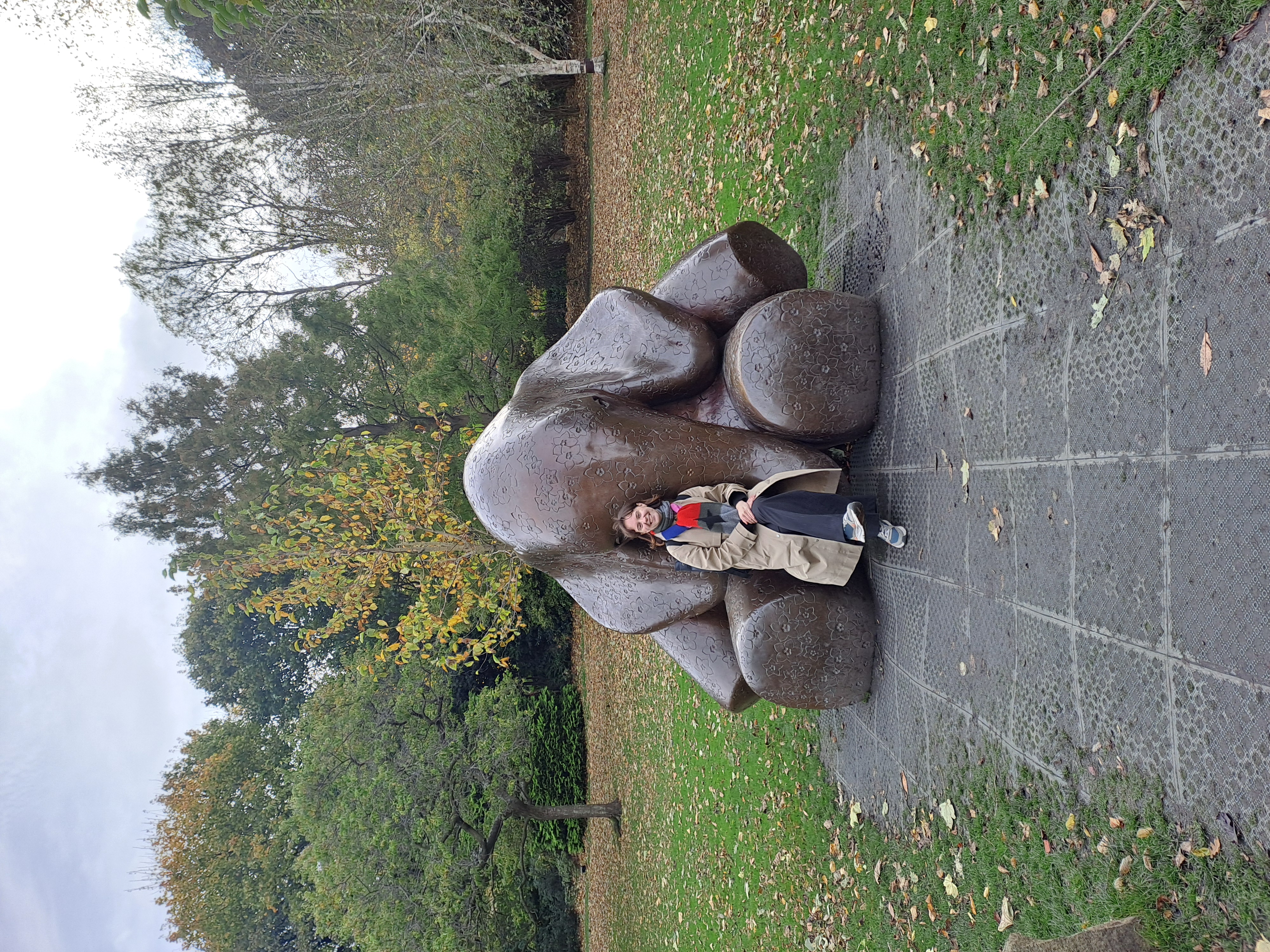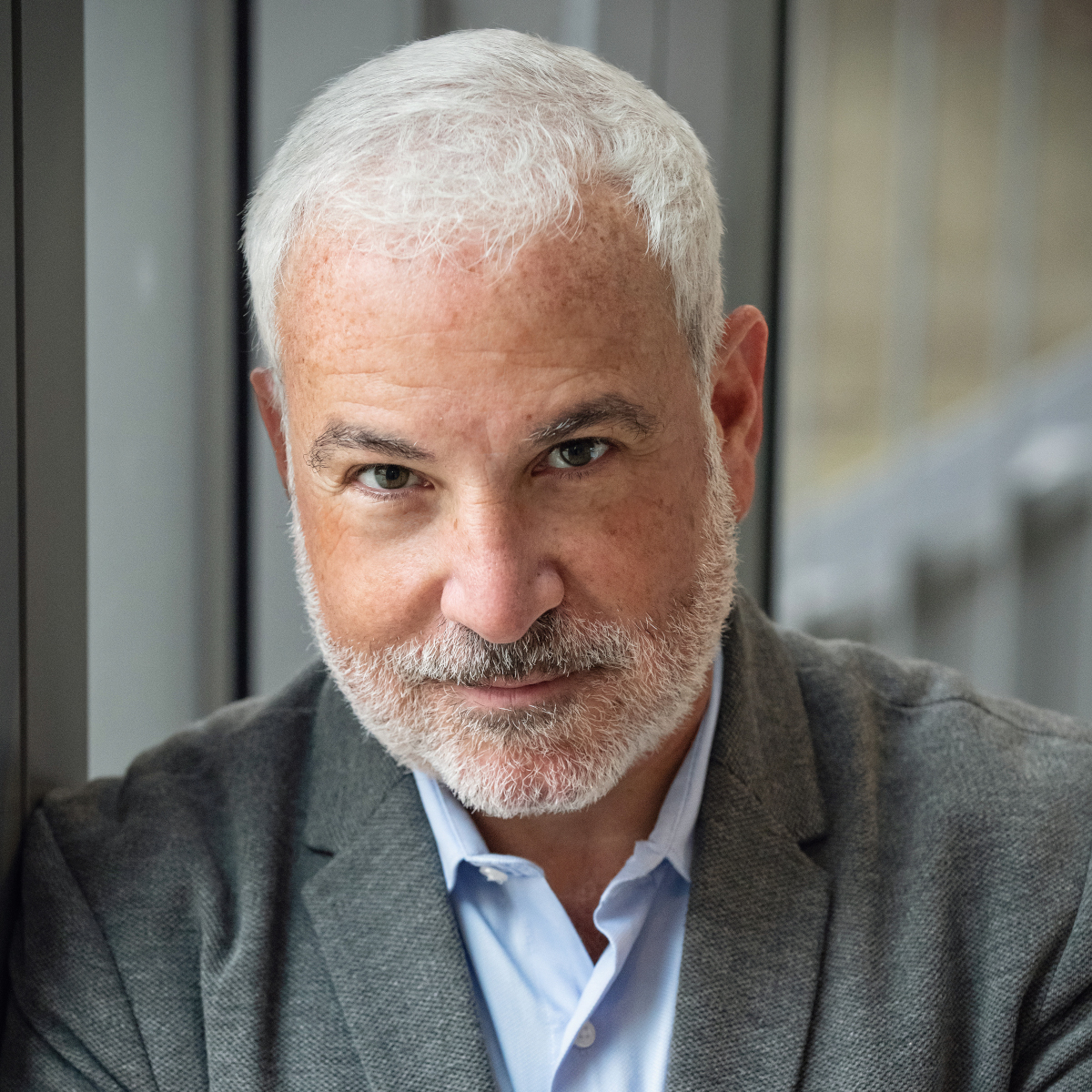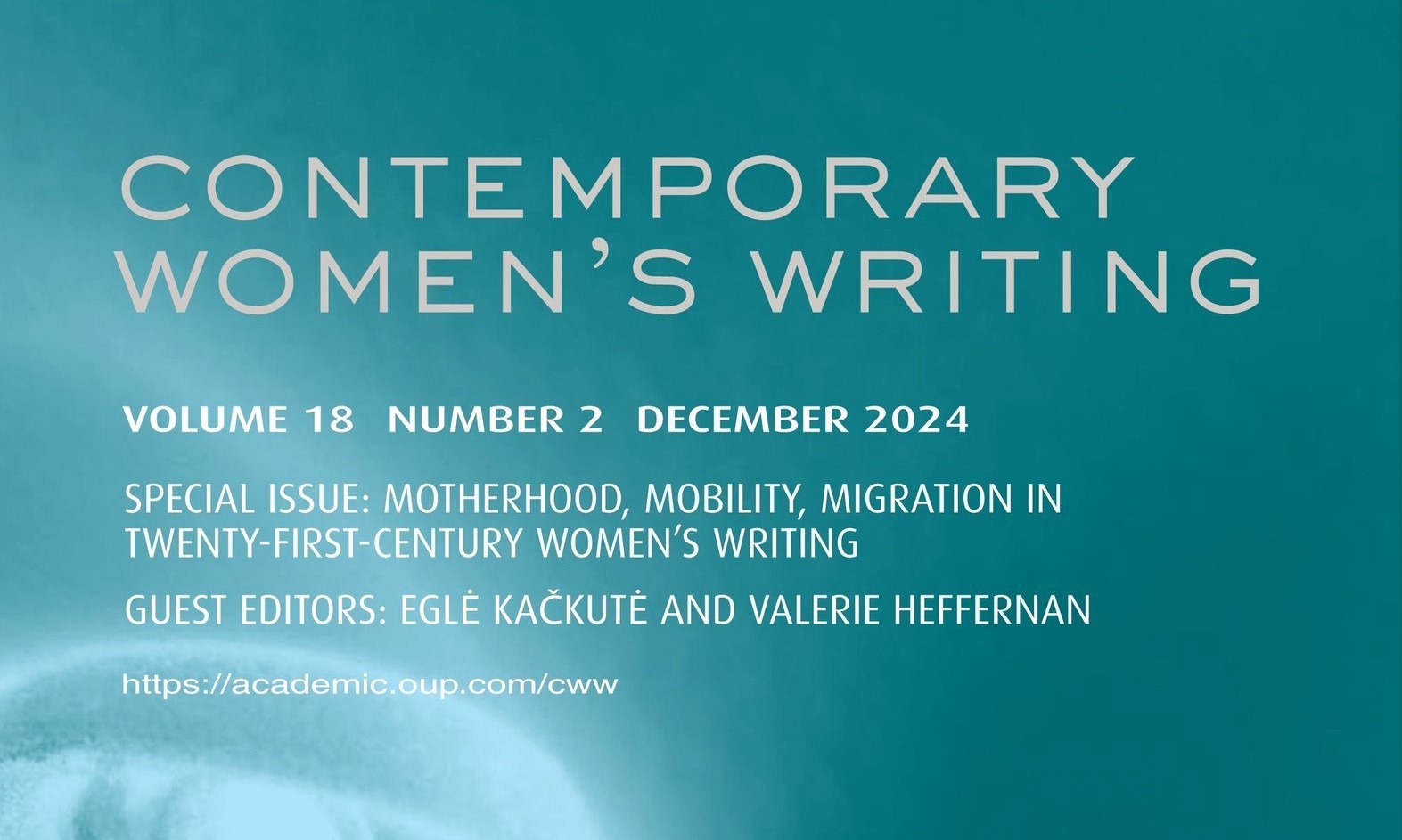
Dr Veslava Sidaravičienė, Research Assistant at the Department of Baltic Studies of the Institute for the Languages and Cultures of the Baltic of Vilnius University
Since secondary school, Vanesa Feldmane has known that her future would be tied to Lithuania and the Lithuanian language. Despite her visual impairment, Vanesa remains determined to pursue her life goals. Currently, she is studying in Lithuania and feels part of the community here. She hopes to stay in the country, as she appreciates the local language.
The student first developed an interest in the Lithuanian language while still at school. "I have relatives in Lithuania. My grandmother’s brother is Latvian. I thought that it was great that I could communicate with him, but his wife only speaks Lithuanian and Russian, and I don’t speak Russian." So, in her free time after school, Vanesa started learning Lithuanian on her own initiative, listening to YouTube videos and music.
"People, don’t torture yourselves by learning a language through political discussions! During the lockdown, I listened to Lithuanian National Radio and Television broadcasts, so I initially learnt to talk about politics. Later, during university seminars on food, I realised: "Now, I finally get to learn how to talk about this topic," laughed Vanesa.
She is currently pursuing her Master’s degree in Intermedial Studies of Literature at the Faculty of Philology of Vilnius University (VU).
Lithuanian language studies in Latvia
Vanesa knew she wanted to study Lithuanian, so there was no hesitation before enrolling in Baltic Philology at the University of Latvia. In addition to learning practical Lithuanian, students there also take courses in Lithuanian literature, folklore, and history, compare Lithuanian and Latvian grammar, and study translation theory. The Centre for Lithuanian Studies at the University of Latvia plays an active role in supporting the academic growth of students by organising research expeditions, collecting the latest Lithuanian literature and publications and hosting Lithuanian-Latvian translation workshops. It serves as a lively bridge for knowledge and cultural exchange between the two countries.
"I’m very happy that my teacher, Edmunds Trumpa, finally helped me fix my Lithuanian grammar. When I started university, I already spoke Lithuanian, but my grammar was kind of all over the place," she recalled.
During the first year of studies, in 2021, Vanesa took part in Lithuanian language and culture courses organised by Vytautas Magnus University. "Next year, my teacher suggested that I go to Vilnius to study Lithuanian there," remarked the student.
Even when she is back in Latvia, Vanesa now communicates exclusively in Lithuanian, speaking Latvian only with her parents and a few friends.
In her final year of secondary school, Vanesa met members of the Lithuanian Association of the Blind and Visually Impaired and found her best friend through Zoom. Now, she has many friends in Lithuania.
"I’m part of a community. These are people with whom I share common interests and can talk about anything. I’d really like to keep living, studying, and working in Lithuania. I truly enjoy Vilnius and its Old Town. The Lithuanian language is worth learning just for the way it sounds. It feels so good to speak Lithuanian," said Vanesa.
Although she is fluent in Lithuanian, some misunderstandings still happen. "For instance, with the names of plants. I told my friend: ‘You know, you could even poison me!". I’m not really on friendly terms with plants; I don’t even know their names in Latvian," she quipped. The student also remembers some funny moments with the word bauda, which in Lithuanian means "a fine" (as in a monetary penalty). In Latvian, the same word denotes "pleasure". It was the first word she learnt.
However, Vanesa does not let these small mistakes bother her – true friends would never laugh at her, even if she slips up.
Studies at Vilnius University
After completing her Bachelor’s degree, Vanesa did not think twice about pursuing her dream of moving to Lithuania. "My colleague and I were exploring study options at Vilnius University when we came across Intermedial Studies of Literature. That summer, I applied to three different programmes, thinking that even if I didn’t get into my first choice, at least I’d be living in Lithuania. It’s amazing – and a bit surreal – that I ended up exactly where I wanted to be and even secured a free study place," said Vanesa.
She is certain that, no matter what happens, her life will always be inseparable from Lithuania.
Vanesa is planning to write her Master’s thesis on gastropoetics: "This is a literature analysis based on descriptions of food and drink found in different texts. I’ll compare Lithuanian and Latvian works, examining how food is depicted and in what contexts it appears."
Vanesa is glad she had the opportunity to read a wealth of Lithuanian literature during her studies at the University of Latvia: "I’ve read "Metai" ("The Seasons") by Kristijonas Donelaitis, "Balta drobulė" ("White Shroud") by Antanas Škėma, and many other works. Since I had already learnt Lithuanian quite well during the lockdown, I could already read books while other students were still grasping the basics. I am deeply grateful to my professor, Edmunds Trumpa, for introducing me to Lithuanian literature. That solid foundation has given me the confidence I need for my studies at Vilnius University.’
When asked whether she has any difficulties finding professional and fiction literature in audio format, Vanesa is quick to respond: "I’ve never had trouble finding what I need at Vilnius University. The Lithuanian Audiosensory Library also has a vast collection of audiobooks, including the latest ones. Of course, you won’t find a book that was published just a week ago, as no one can release it in audio format that fast. In Latvia, just three or four books are turned into audiobooks each month, whereas in Lithuania, that number is far higher every week. Moreover, the Audiosensory Library has provided me with access to bookshare.org, a large database where I can find everything I need for my studies. Of course, the teaching staff are always there to support me as well."
She has been using the resources of the Audiosensory Library since 2020, when a colleague helped set up her account. "Imagine my excitement – being able to download all the books I want right away. All of them and hassle-free!"
Vanesa’s favourite Lithuanian author is Kristina Sabaliauskaitė. "No question! There’s no two ways about it," she added confidently.
According to Vanesa, "People with various disabilities, other than visual impairments, can also thrive at Vilnius University. The VU Disability Affairs Coordinator is an amazing person. She always makes sure everything is tailored to my needs."
This article concludes the series of five articles featuring alumni from centres of Baltic studies in other countries compiled by the Department of Baltic Studies at the VU Faculty of Philology. After graduation, they not only continue to deepen their knowledge of Lithuanian but also integrate the Lithuanian language, literature, and culture into their professional activities.
This article is part of the project ‘Information and Coordination Portal of Baltic Studies Centres’ (No. 1.78 Mr SU-1006) implemented by the Department of Baltic Studies at the VU Institute for the Languages and Cultures of the Baltic and supported by the Ministry of Education, Science and Sport of the Republic of Lithuania.
Prepared by Dr Veslava Sidaravičienė, Research Assistant at the Department of Baltic Studies of the Institute for the Languages and Cultures of the Baltic of Vilnius University.
